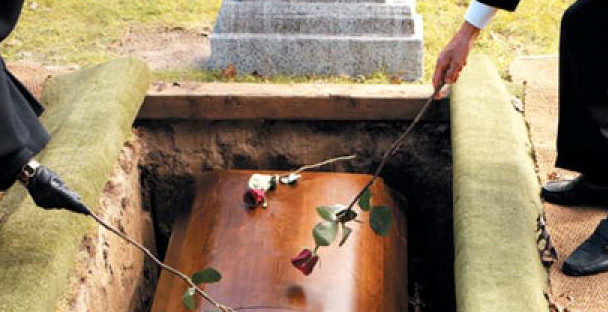DOCTOR TELLS MAN: WE KILLED YOUR ‘DEPRESSED’ MOM
BOB UNRUH
WND.com
A Belgian man whose mother was euthanized without his knowledge by a doctor because she suffered depression has filed a complaint with the European Court of Human Rights.
The Alliance Defending Freedom says in its petition on behalf of Tom Mortier that oncologist Wim Distelmans, a leading promoter of euthanasia in Belgium, first met Godelieva De Troyer in late 2011. The following February, she made a donation of 2,500 euros to a foundation he runs.
Just six weeks later, Distelmans “euthanized” De Troyer, informing her son a day after she was dead, the complaint explains.
The case challenges Belgium’s law allowing doctor-prescribed death.
It argues Mortier’s mother was not terminally ill but had complained of depression, a condition several other doctors had determined was treatable.
“The government has an obligation to protect life, not assist in promoting death,” said ADF Litigation Staff Counsel Robert Clarke. “A person can claim that she should be able to do whatever she pleases, but that does not override the government’s responsibility to protect the weak and vulnerable. We are encouraging the European Court to uphold this principle, which is completely consistent with the European Convention on Human Rights.”
The Belgian law requires three other physicians who had no previous involvement with the patient’s care to sign off on a decision to euthanize.
De Troyer’s own physician, who had treated her for more than 20 years, had rejected her requests for euthanasia.
But she went to see Distlemans, and after a 2,500 euro donation to Life End Information Forum, an organization co-founded by Distelmans, he carried out her request to die because of the depression, ADF said.
“No one contacted Mortier before his mother’s death despite the fact that he says her depression was not only largely the result of a breakup with a man, but also due to her feelings of distance from her family,” according to ADF.
The complaint further argues Distelmans has no psychiatric qualifications, and none of the doctors involved had any enduring doctor-patient relationship with De Troyer.
ADF also points out the commission the government established to investigate any failure to observe the euthanasia law has been led, since its creation, by Distelmans.
“Despite evidence of widespread abuse of the law, the commission has never referred a case to the prosecutor,” ADF charges.
“The institutions of the Council of Europe have shown consistent opposition to the legalization of assisted suicide and euthanasia. … [T]he only positive duty on a state is the positive duty to protect life,” the complaint says.
“People suffering from depression need compassion and love, not a prescription for death,” said ADF Senior Counsel Roger Kiska. “The state has a duty to put the necessary safeguards in place so that suffering patients receive adequate care from doctors and an opportunity to consult with family members.”
ADF said it already is defending Switzerland’s denial of suicide drugs to a woman who is not suffering from any fatal disease.
The legal team’s timeline of the case shows De Troyer saw Distelmans at the end of September 2011. He referred her to a psychiatrist, Dr. Verbeek, who confirmed she was suffering from depression.
She later met with two other psychiatrists, who split on whether she should be killed or helped.
Then came her donation to Distelman’s group and the decision to go ahead with the “assisted suicide.”
“It is submitted that by making euthanasia available to Mrs. Godelieva De Troyer, the High Contracting Party has violated the applicant’s rights under Article 8, and his mother’s rights under Article 2,” the complaint states. “It is further submitted that the High Contracting Party has also violated the applicant’s rights under Article 13 given the conflict of interest created by the composition of the federal control and evaluation commission.”
ADF argues there’s an absence of any references to euthanasia in international human rights treaties, and U.N. treaty monitoring bodies have questioned the practice in the small minority of countries that have legalized it.
“For example, the most recent concluding observations of the Human Rights Committee in the Netherlands states: ‘The committee remains concerned at the extent of euthanasia and assisted suicides.’”
In the De Troyer case, ADF said, “the applicant’s mother was able to dispense with the services of her treating physician of more than 20 years and visit no fewer than four new doctors over the source of a seven-moth period,” ending with her death.
The complaint notes Distelmans’ specialty is oncology, not “mental health.”
“Further compromising any supposed ‘independence’ is the fact this same association received a payment of 2,500 [euros] from Mrs. De Troyer, before her death … marked for the attention of Dr. Distelmans as president.”
The complaint argues Belgium, which allows children to be euthanized as well, has gone too far, explaining “the balance has shifted unacceptably in favor of personal autonomy at the expense of the important public interest and a state’s obligation [to protect life].”
ADF Senior Counsel Kiska said people “suffering from depression need compassion and love, not a prescription for death.”
“The state has a duty to put the necessary safeguards in place so that suffering patients receive adequate care from doctors and an opportunity to consult with family members,” he said.
ADF is also at the ECHR defending Switzerland’s denial of suicide drugs to a woman who does not suffer from any fatal disease. In an earlier case, the ECHR rejected the claim Switzerland had an obligation to assist in suicide.
Read more at http://www.wnd.com/2014/09/doctor-tells-man-we-killed-your-depressed-mom/#Qy0x2gZOWKKOydvf.99
